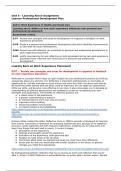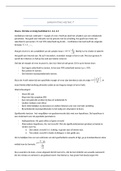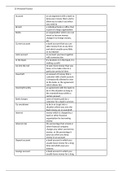Essay
Essay Unit 6 Work Experience
- Module
- Unit 6 Work Experience
- Institution
- PEARSON (PEARSON)
Work experience assignment 2 LOD. Includes P7, P8, M4 and D3. Reflect on how work experience influences own personal and professional development.
[Show more]





